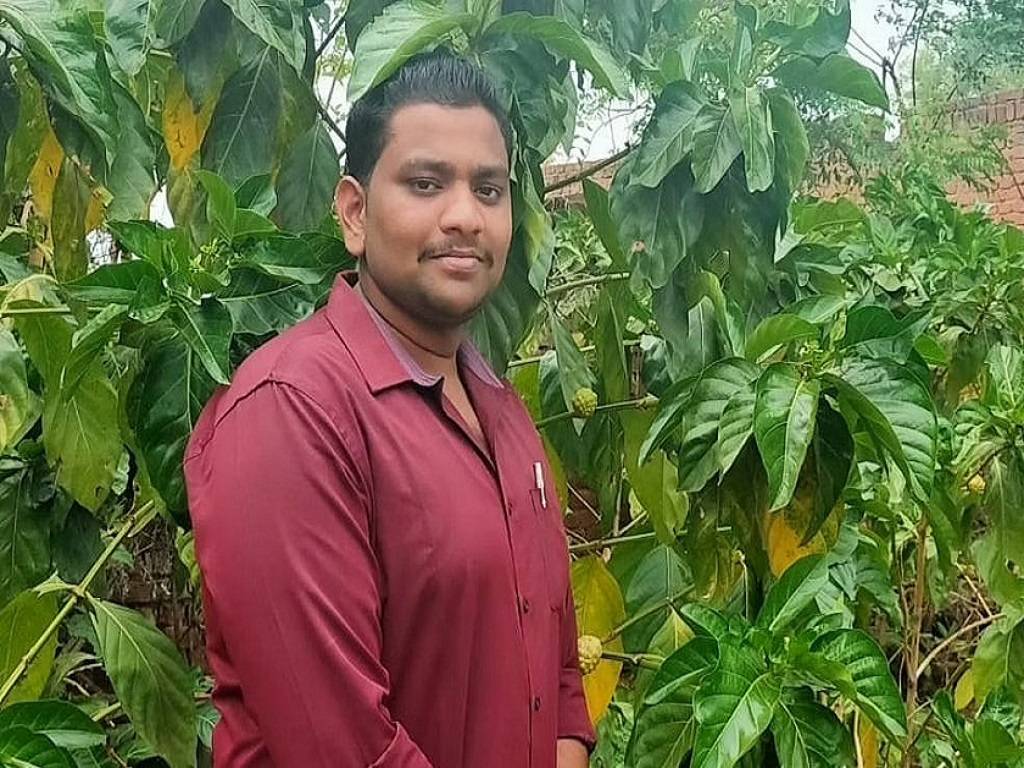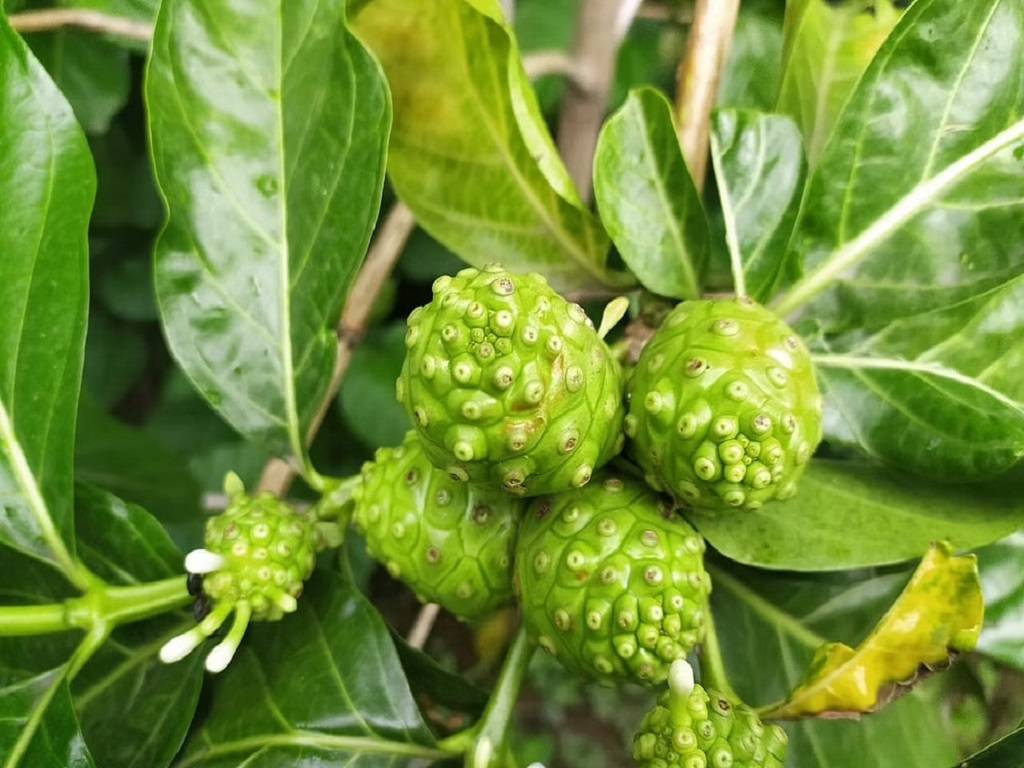
Noni, commonly known as the Indian Mulberry, is a native fruit that has been used for thousands of years by ayurvedic practitioners. The fruit is rich in pectin, vitamin C, amino acids, and other minerals. Its juice is suggested to increase immunity, promote hair growth, and prevent the spread of tumors and cancerous cells, among other things.
This fruit and plant are, however, uncommon because they are only cultivated in coastal regions of Karnataka, Tamil Nadu, Kerala, and Odisha because the seeds need a tropical climate to germinate.
The founder of Jivanbodh Agrotech and Bsc Agriculture graduate from Jharkhand Rai University, Prasenjeet Kumar, has succeeded in growing noni in his backyard in Bokaro, Jharkhand.
Prasenjeet while interacting with media told, "I not only grew the fruits, but I also used conventional methods to extract juice from them. I was also able to germinate extra seeds from the fruits I grew.”
Procuring Noni seeds
In 2018, Prasenjeet's father told him of the benefits of Noni fruit during a conversation. He learned about the tropical fruit from his father, an experimental farmer, who also told him why it cannot be cultivated there.
"My father, Vivekanand, grows dragon fruit, night-flower jasmine, and red lady papaya. He was the first person in our area to start growing spirulina (algae) back in 2005. My mother, who practices Ayurveda and uses conventional recipes to treat mild illnesses, likewise confirmed its therapeutic benefits. She explained why Noni is regarded as a sanjeevani fruit (fruit of immortality),” Prasenjeet states.
He began by locating a field in Odisha where the fruit was already being grown. He learned from them that the seed's tough exterior causes it to take up to six months to grow into a sapling.
The seed remains in tropical conditions for these six months.
“The farm was open to giving me a cutting or a plant when I contacted them, but they were hesitant to give me seeds. In non-coastal places, seeds have so far failed to produce any harvest. However, I wished to grow Noni from seed in order to produce a plant suited for the climatic conditions of Bokaro. As a result, I persuaded them and spent Rs 1,000 on 200 seeds,” said Prasenjeet.
Germinating the seeds
After receiving the seeds, he went to a professor at JRU University who taught plant breeding to get advice on how to get the seeds to germinate.
The professor advised breaking the shell of the seeds by immersing them for two minutes in concentrated sulfuric acid. He warned them, though, because sulfuric acid can cause skin burns.
"My father agreed to take the chance even though I was hesitant to test it out. So, we bought some concentrated sulfuric acid, immersed the seeds in it, and then peeled off the outer layer. My father burned himself during the process, despite the fact that he was using a steel ladle and garden gloves to scoop the seeds. But fortunately, nothing too serious happened,” he said, adding that he even constructed a cheap polyhouse to grow the seeds in a temperature-controlled setting.

He erected wooden sticks and covered them in plastic sheeting to create the polyhouse. 116 of the 200 seeds that were individually inserted into sapling containers grew after 50 days. None of the others grew.
The saplings were transferred to the garden soil, which had been improved with organic manure and compost. Only 16 saplings reached a healthy three-foot height within a few months.
"The trees were filled with Noni fruits by November 2019, following the monsoon rains. The first year, I harvested up to 45 kg. I can collect at least 10 fruits from each tree each month because the tree bears fruit and flowers all year long, said Prasenjeet.
He is currently using the fruits for his consumption rather than selling them. His mother uses a conventional technique to extract the juice and gives it to some patients.
“Due to the fruits' tendency to spoil fast, even in cold storage, we decided not to sell them. As a result, we put them in airtight jars and let them ferment outside in the sun,” according to Prasenjeet.
Aims to Empower other Farmers
Prasenjeet gathered additional seeds from the harvested fruits and made another attempt at germination. He didn't use concentrated sulfuric acid this time, though. The same polyhouse technique was used, and the seeds grew into plants in 45–50 days.
He added, "I just tested this with four seeds, and they worked. I think the seeds can be cultivated by other farmers as well because they have adapted to the Bokaro climate.” Prasenjeet further notes that 10 seeds typically cost Rs 250 and that a kilogram is worth Rs 800.
In order for the government to encourage other farmers to plant Noni and enhance their living conditions, he aims to show his success to Hemant Soren, the Chief Minister of Jharkhand.









